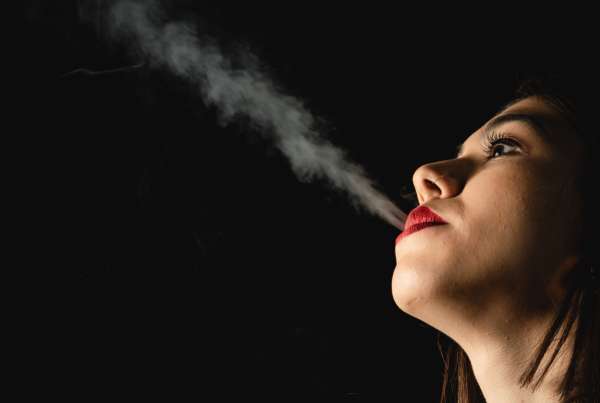Noah Levine’s Refuge Recovery provides another approach to recovery–one seeped in Buddhist practice. We were inspired by his talk at this year’s Innovations in Recovery conference. Since 1935, Alcoholics Anonymous has been a foundational component of recovery for millions of  alcoholics and addicts. It is free, it is available for all ages, it is simple in the way it’s shared and processed, and it also hasn’t really changed. When I take sponsees through the steps, they often comment on my old, tattered copies of the Twelve and Twelve and Big Book of Alcoholics Anonymous. Over the years, however, my perception and process around the steps has shifted. It has evolved, if you will, to include another path, one that I share with those willing to begin the process of uncovering, discovering, and discarding old behaviors in a new, approachable way.
alcoholics and addicts. It is free, it is available for all ages, it is simple in the way it’s shared and processed, and it also hasn’t really changed. When I take sponsees through the steps, they often comment on my old, tattered copies of the Twelve and Twelve and Big Book of Alcoholics Anonymous. Over the years, however, my perception and process around the steps has shifted. It has evolved, if you will, to include another path, one that I share with those willing to begin the process of uncovering, discovering, and discarding old behaviors in a new, approachable way.
Several years ago, Noah Levine, author of Dharma Punx, Against the Stream, Heart of the Revolution and founder of Against the Stream Meditation Society, started formulating the ideas behind his program called Refuge Recovery – a way of approaching recovery from addiction via the Buddhist path. This is a path fraught with self-inquiry, curiosity, dedication, and a call to put these actions into practice. Refuge Recovery views recovery as a process that heals the underlying causal factors that led to addiction in the first place. His latest book, Refuge Recovery: A Buddhist Path to Recovering from Addiction, outlines his adaptation of the Buddhist 4 Noble Truths and Eightfold Path to use as an approach to recovery.
Refuge Recovery requires that practitioners practice renunciation: a formal rejection and abstinence from harmful behavior, including using drugs and alcohol. One is required to start with an in-depth personal inventory: a thorough, inquisitive investigation of one’s behavior, traumas, and resulting consequences and how they have manifested in one’s life. One is asked to take refuge in their community, and in the practices of meditation and renunciation. Here, taking refuge means we are taking shelter or finding safety and protection in recovery and community. In many ways, addicts and alcoholics have been attempting to take refuge via substances for years, only to find there is no real sanctuary there.
Refuge Recovery is based on Buddhist principles, which integrate scientific, non-theistic, and psychological insight. Addictions are viewed as cravings in the body and mind; using meditation to create awareness can alleviate those cravings and ease one’s suffering. It is done through this adaptation of the 4 Noble Truths:
1. Take inventory of our suffering: that which we have experienced and that which we have caused. (Uncover)
2. Investigate the cause and conditions of our suffering. (Discover) Begin the process of letting go. (Discard)
3. Come to understand that recovery is possible, taking refuge in the path that leads to the end of addiction and suffering.
4. Engage in the Buddhist Eightfold Path that leads to recovery.
What follows is the Buddhist Eightfold Path.
The first two address the development of Wisdom.
1. Wise understanding
2. Wise intentions
These three address Moral Conduct:
3. Wise speech/community
4. Wise actions
5. Wise livelihood/service
These three address Mental Discipline
6. Wise effort
7. Mindfulness
8. Concentration
Another difference between Refuge Recovery and the 12 Steps is there is not a specific order: this is not a linear path. Through this process, one develops compassion and wisdom: two sides of the same coin, if you will. Compassion is equated with love, charity, kindness, and tolerance—qualities of the heart; Wisdom represents the quality of the mind: our ability to concentrate, make wise choices, and to critically think. However, compassion without wisdom, leads to foolishness, and wisdom without compassion leads to stoicism. The two must interweave.
I share this with you not to berate AA, but to provide a view outside of what we are familiar with and to open the doors of the mind and heart to see a way of broadening one’s path. Bill W encouraged a broadening of the spiritual path: Refuge Recovery is that broadening. This is an opportunity to really look deeply into ingrained habits and patterns that prevent us from being truly free from our suffering. Visions began taking our teens that are on our mental health track to Refuge Recovery meetings with much success. Of late, our teens that usually go to AA meetings are also enjoying Refuge Recovery meetings. It’s important to note that one is not better than the other: AA and Refuge Recovery can complement each other, leaving space for curiosity and introspection from a theistic or non-theistic path.
We leave no stone unturned in treatment: we provide what is necessary to recovery and we are grateful that the options for support are expanding.
Originally posted on April 3, 2014 @ 1:11 am







One Comment